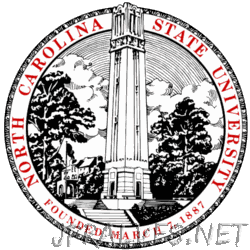Other

“Researchers at North Carolina State University have now identified a welding technique that can be used to join composite metal foam (CMF) components together without impairing the properties that make CMF desirable. CMFs hold promise for a wide array of …

“Magnetic cilia — artificial hairs whose movement is powered by embedded magnetic particles — have been around for a while, and are of interest for applications in soft robotics, transporting objects and mixing liquids. However, existing magnetic cilia move in a fixed …

“Photos are two-dimensional (2D), but autonomous vehicles and other technologies have to navigate the three-dimensional (3D) world. Researchers have developed a new method to help artificial intelligence (AI) extract 3D information from 2D images, making cameras more useful tools for …

“A new study finds that “connected” vehicles, which share data with each other wirelessly, significantly improve travel time through intersections — but automated vehicles can actually slow down travel time through intersections if they are not connected to each other. The …

“Researchers at North Carolina State University have developed a robotic gripping device that is gentle enough to pick up a drop of water, strong enough to pick up a 6.4 kilogram (14.1 pound) weight, dexterous enough to fold …

“Researchers have developed a metallic gel that is highly electrically conductive and can be used to print three-dimensional (3D) solid objects at room temperature. “3D printing has revolutionized manufacturing, but we’re not aware of previous technologies that allowed you …

“In a new study, North Carolina State University researchers made a cathode, or the positive end of a battery, in the shape of a thread-like fiber. The researchers were then able to use the fiber to create a zinc-ion battery …

“Researchers at North Carolina State University have demonstrated a caterpillar-like soft robot that can move forward, backward and dip under narrow spaces. The caterpillar-bot’s movement is driven by a novel pattern of silver nanowires that use heat to control …

“Inspired by the biomechanics of the manta ray, researchers at North Carolina State University have developed an energy-efficient soft robot that can swim more than four times faster than previous swimming soft robots. The robots are called “butterfly bots,” because …

“Solar energy is key to combating climate change, but harnessing it is difficult. In current solar panels, only 20% of available energy is typically transformed into electricity. An NC State professor is leading the development of more effective solar panels …

